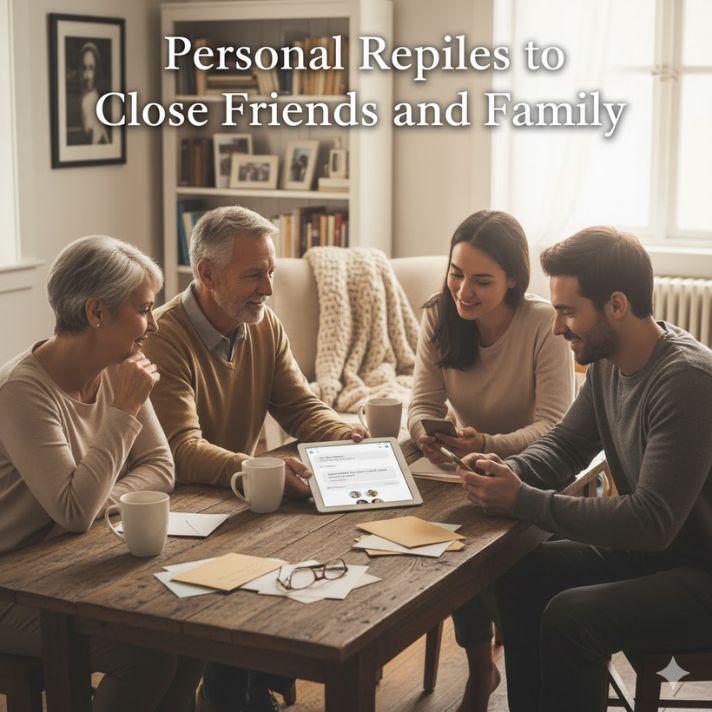Knowing how to reply to Condolence Messages with Grace can be hard when your heart feels heavy with loss. It’s natural to feel unsure about what to say. Simple, kind words can show valuing and keep connections strong, even when you don’t have the strength for long conversations.
Taking time to respond gently shows respect for those who care about you. Whether through a short message, a thank-you note, or a post online, every kind reply helps express gratitude. There’s no perfect way, just honest words that come from the heart, shared when you feel ready.
Walking the Line Between Silence and Sincerity
Walking the Line Between Silence and Sincerity means finding balance while replying to caring notes. During grief, it’s easy to stay quiet, but gentle honesty helps you stay connected. Using simple condolence replies, emotional balance, and genuine valuing shows care without pressure. Speak softly, express thanks, and take your time to heal.
- Stay honest but kind when responding to condolence messages.
- Silence is okay, but sincere words build emotional connection.
- Use short, heartfelt replies to show appreciation and warmth.
- Balance your need for space with kindness toward others.
When grieving, silence often feels safer than words. Yet, a sincere thank-you can comfort both you and others. By replying gently, you show that their support and compassion truly matter. Even short messages can add to relationships and help you heal emotionally while keeping communication open and meaningful.
Sincerity doesn’t mean saying more, it means saying what feels real. A few honest words can speak louder than long, formal replies. Whether you write or simply acknowledge kindness, your real response shows respect and gratitude. This genuine tone turns emotional moments into good times for healing and heartfelt connection.
Finding balance between silence and sincerity takes time. You don’t need to respond right away or to everyone. Choose words that feel natural and comforting. As you recover, your thoughtful responses will express love and valuing, showing others that their care has made a difference during your difficult days.
Why It’s Worth Responding (Even Simply)

Understanding why it’s worth responding to condolence messages reminds us how meaningful simple kindness can be. A few sincere words show gratitude, comfort, and respect. Even short thank-you replies to sympathy notes add to emotional bonds and remind others their support and care truly made a difference during your joy.
- Responding shows valuing for others’ love and care.
- Even small replies build emotional connection and comfort.
- A thank-you note keeps relationships strong after loss.
- Kind words remind others their support truly mattered.
A gentle reply, even if short, can mean the world to someone who reached out. It tells them their care was noticed and valued, helping both hearts feel a little lighter during difficult times.
A simple and kind reply such as:
- “Your message truly touched my heart, thank you.”
- “I deeply appreciate your kind words and support.”
often feels more genuine and comforting than a long response that tries too hard or comes before you’re emotionally ready to write it.
When You’re Not Ready Yet: It’s Okay to Wait
When you’re grieving, finding the strength to reply can feel impossible. It’s normal to need time and space before responding to sympathy notes. Waiting to reply to condolence messages allows healing and reflection. Taking your time helps you answer with honesty, comfort, and emotional balance, instead of pressure or guilt.
If this feels too heavy right now, that’s completely fine.
There’s no rush to respond. You may decide to:
- Wait until your heart feels lighter and you can speak calmly.
- Respond only to the people closest to you.
- Send one thoughtful note later instead of many.
- Take breaks and reply when emotionally ready.
- Choose silence until words feel natural again.
You might also write a short note that kindly lets others know you value them but need more time:
- “Thank you for your kind message. I’ll reply properly when I feel ready.”
- “Your support means a lot. I’m not up to talking much yet, but I truly appreciate you.”
This helps people know their kindness reaches you and allows you the freedom to heal at your own pace, without feeling pressured or guilty for waiting.
Personal Replies to Close Friends and Family

When sending personal replies to close friends and family, honesty and warmth matter most. These people shared deep memories and offered true comfort during your loss. Use thankful words, personal touches, and emotional sincerity to express appreciation. Even short, heartfelt messages can strengthen bonds and bring gentle healing.
Your responses don’t need to be lengthy or detailed. A clear and gentle format works best begin with valuing, include a small personal touch, and finish with a warm and caring closing.
Thankfulness + Meaningful Memory + Kind Ending
Examples:
- “Thank you for your kind words about Mom. I’ll always remember how much she enjoyed your visits. Your support brings real comfort.”
Or
- “I’m grateful for your thoughtful message. Dad always spoke fondly of you, and knowing you remember him means more than I can say.”
These personal condolence replies remind loved ones that their care matters deeply. By adding a memory or kind thought, you make your message more meaningful. Genuine, heartfelt words shared with family and friends help heal both sides through love and remembrance.
Social Media or Group Message Replies
When you receive many condolence messages on social media, replying to everyone can feel overwhelming. Writing one public thank-you post helps express gratitude with ease. Use warm, simple words to show valuing for everyone’s support. This thoughtful response keeps your message sincere while protecting your emotional energy.
Here, one kind and open post can be both meaningful and manageable for you:
- “I’ve read every kind message and comment, and your words have truly touched my heart. Though I can’t respond to everyone, please know your comfort and support mean the world to me during this difficult time.”
This lets everyone know their kindness was felt and valued, even if you couldn’t respond to each message personally or immediately.
What to Say When You’re Feeling Overwhelmed

When you’re deeply hurting, even replying to kind words can feel too much. It’s okay to keep your condolence replies simple and honest. Short, gentle messages show valuing without adding stress. Expressing gratitude in small ways helps you stay connected while protecting your emotional energy and peace.
Below are a few short and gentle ways you can respond when words feel hard to find:
- Thank you for reaching out. Your kindness truly means a lot.
- I’m grateful for your comforting words during this time.
- Your support gives me strength, even when it’s hard to express.
- I value your message and your thoughtfulness more than I can say.
If you can only send a few replies each day, that’s perfectly fine. Healing takes time, and responding slowly doesn’t mean you care any less.
When Someone Reaches Out Late
When someone sends late condolence messages, their care still matters. Responding kindly shows valuing and keeps emotional connections strong, even after time has passed. Grief and kindness never expire.
A kind and gentle response can still bring comfort and valuing, even when the message arrives long after the loss.
- Thank you so much for thinking of me, even after some time has passed. Your thoughtful message reminds me that love and support continue to surround me, and I truly value your kindness.
Late condolences still bring love; they remind us we’re not forgotten and that compassion continues long after the hardest days.
Writing on Behalf of Your Family

When replying on behalf of your family, choose warm and respectful words. Express shared gratitude and collective valuing for the kindness and sympathy others have shown during this difficult time.
Examples:
- On behalf of our family, thank you for your comforting words and support. Your kindness has brought us peace and strength.
- Our whole family deeply values your message about [Name]. Your thoughtfulness and prayers mean so much to all of us.
Group replies show unity and valuing, reminding others their support has touched every heart within your family during this time.
Final Thoughts: Say What You Can, When You Can
Knowing how to reply to condolence messages with grace helps you express gratitude while protecting your heart. Whether through short notes, social media replies, or family messages, each word shows kindness, sincerity, and emotional strength. Grief takes time, so respond only when you feel ready.
Even simple thank-you messages carry deep meaning and help maintain emotional connections during loss. Always choose gentle, honest words that give back valuing and love. In every response, you honor both your loved one’s memory and the compassion others have shared, creating moments of comfort, peace, and mutual understanding in difficult times.
FAQs
How can I reply to condolence messages with grace?
You can reply with short, sincere words that show gratitude and love. Speak honestly, thank them for their kindness, and take your time.
Is it okay to reply late to condolence messages?
Yes, it’s perfectly fine. Grief has no timeline, and people understand. Respond when you feel emotionally ready, not when you feel pressured.
What should I say if I feel too sad to respond?
You can send a brief note expressing thanks and mention you’ll reply properly later. This shows valuing while giving yourself needed space.
How do I thank people on social media for condolences?
Post one kind message thanking everyone for their support. It’s heartfelt, practical, and comforts people whose kindness was seen and valued.
Can I reply on behalf of my whole family?
Yes, you can. Use warm words like “On behalf of our family” to express shared gratitude and respect for everyone’s thoughtful messages.
Read More Articles: Msgsword



